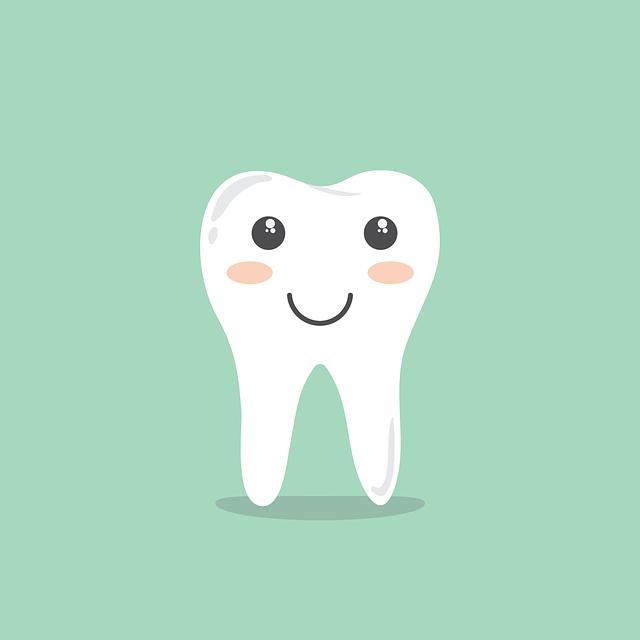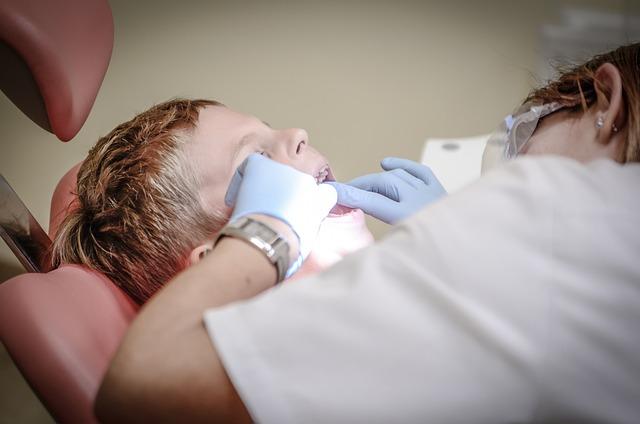Is Salt Gargle Good for Teeth: Facts Unveiled
Are you searching for a simple yet effective way to improve your oral health? Look no further than your kitchen cabinet! Salt gargle, a time-tested remedy, has been hailed for its potential benefits for teeth. But before you reach for that salt shaker, it’s important to separate fact from fiction. In this article, we will unveil the truth behind the age-old question: Is salt gargle good for teeth? Get ready to dive into the world of dental hygiene as we explore the scientific evidence and expert opinions, providing you with a clear and confident understanding of this popular practice.
1. The Age-Old Remedy: Exploring the Effectiveness of Salt Gargle for Dental Health
Many people are looking for natural remedies to maintain their dental health, and one age-old remedy that has gained attention is salt gargle. Salt gargle involves dissolving salt in warm water and rinsing the mouth with the solution. This practice is believed to have several benefits for dental health, backed by anecdotal evidence and some scientific studies.
Benefits of salt gargle for dental health:
- Reduces inflammation: Salt has natural anti-inflammatory properties that can help reduce swelling and inflammation in the gums.
- Kills bacteria: Salt is known for its antibacterial properties, which can help kill harmful bacteria in the mouth that may cause plaque buildup and cavities.
- Promotes healing: Salt gargle can aid in the healing process of minor mouth irritations, such as mouth ulcers or sore gums.
- Improves bad breath: Salt gargle can help eliminate bacteria that contribute to bad breath, providing a fresher breath.
While salt gargle can be effective for dental health, it’s important to note that it should not replace regular oral hygiene practices, such as brushing and flossing. It is always advisable to consult with a dentist before incorporating any new oral care routine into your daily regimen.

2. Unveiling the Truth: Does Salt Gargle Actually Benefit Teeth and Gums?
Many people have heard that gargling with salt water can benefit their teeth and gums, but is there any truth to this claim? Let’s take a closer look at the potential benefits of salt gargling for oral health:
- Reduces inflammation: Salt water gargles can help reduce inflammation in the gums and throat. The salt acts as a natural disinfectant and can help soothe irritated tissues.
- Kills bacteria: Salt has antimicrobial properties, which means that gargling with salt water may help kill bacteria in the mouth. This can be particularly beneficial for those with gum disease or oral infections.
- Relieves pain: Salt water gargles can provide temporary relief for toothaches, sore throats, and canker sores. The warm salt water can help numb the area and reduce discomfort.
It is important to note that while salt gargling can offer some benefits, it is not a substitute for regular brushing, flossing, and professional dental care. It should be used as a complementary practice to maintain oral hygiene. Additionally, it is essential to use the correct concentration of salt in the gargle solution, as too much salt can be harmful to your oral health.

3. Separating Myth from Reality: Investigating the Scientific Evidence Behind Salt Gargle for Oral Health
When it comes to maintaining good oral health, there is a plethora of information out there, some of it misleading or based on myths. In this section, we will dive into the scientific evidence surrounding the use of salt gargle for oral health, allowing you to separate fact from fiction.
Scientific studies have shown that salt gargle can indeed provide several benefits for oral health. Here are some key findings:
- Reduces bacteria: Salt gargling has been proven to reduce the number of harmful bacteria in the mouth. The saline solution created by mixing salt with warm water creates an environment that inhibits bacterial growth, helping to prevent conditions such as gingivitis and bad breath.
- Relieves inflammation: Salt water gargling can provide relief from oral inflammation caused by certain conditions like sore throat or gum infections. The salt helps to reduce swelling and soothes the affected area, promoting healing.
- Enhances wound healing: Salt gargle has been found to aid in the healing process of mouth sores and minor wounds. The solution helps to cleanse the area, removing debris and promoting faster healing.
It is important to note that while salt gargle can be beneficial, it should not replace regular oral hygiene practices such as brushing and flossing. Additionally, it is recommended to consult with a dental professional before incorporating salt gargle into your oral care routine, especially if you have any pre-existing oral conditions or sensitivities.

4. The Saline Solution: Understanding How Salt Gargle Can Potentially Improve Dental Hygiene
Using a salt gargle is a simple yet effective way to improve your dental hygiene. Salt, a natural mineral, has been used for centuries to treat various ailments, including oral health issues. When used as a gargle, salt can help kill bacteria and reduce inflammation in the mouth. Here’s how it works:
- Kills bacteria: Salt has antibacterial properties that can help eliminate harmful bacteria in the mouth. By gargling with a salt solution, you can reduce the number of bacteria that can cause cavities, gum disease, and bad breath.
- Reduces inflammation: Salt has anti-inflammatory properties that can help soothe irritated gums and reduce swelling. Gargling with a salt solution can provide relief from gum inflammation and promote healing.
- Loosens debris: Salt can help loosen debris and food particles stuck between teeth and in gum pockets. Gargling with a salt solution can aid in dislodging these particles, making it easier to remove them through regular brushing and flossing.
It’s important to note that salt gargles should not replace regular dental hygiene practices. They should be used as a complementary measure to maintain good oral health. If you have specific dental concerns or conditions, it’s always best to consult with your dentist before incorporating salt gargles into your routine.

5. Breaking Down the Benefits: Examining the Pros and Cons of Incorporating Salt Gargle into Your Oral Care Routine
When it comes to maintaining good oral hygiene, incorporating salt gargle into your routine has been a topic of interest. Let’s take a closer look at the pros and cons of this practice to help you make an informed decision.
Pros:
- Natural Antiseptic: Salt is known for its antimicrobial properties, making it an effective natural antiseptic. Gargling with saltwater can help kill bacteria and reduce inflammation in the mouth, promoting oral health.
- Relieves Sore Throat: Salt gargle can provide temporary relief for a sore throat caused by infections or allergies. It can help reduce swelling and ease discomfort, providing a soothing sensation.
- Cost-Effective: Salt is a readily available and affordable ingredient, making salt gargle a cost-effective addition to your oral care routine.
Cons:
- High Sodium Content: Salt gargle contains a high sodium content, which may not be suitable for individuals with high blood pressure or kidney problems. It’s important to consult with your healthcare provider before incorporating salt gargle into your routine if you have any underlying health conditions.
- Potential for Overuse: While salt gargle can provide benefits, excessive use may lead to dryness or irritation of the mouth and throat. It’s recommended to gargle with saltwater in moderation and not as a substitute for regular oral hygiene practices.
- Taste and Discomfort: Some individuals may find the taste and sensation of gargling with saltwater unpleasant or uncomfortable. It’s a personal preference and may require some adjustment to get used to the experience.
6. A Closer Look at the Mechanics: How Salt Gargle Interacts with Bacteria and Plaque in the Mouth
When it comes to maintaining oral health, salt gargles have gained popularity due to their effectiveness in combating bacteria and plaque in the mouth. Understanding the mechanics behind this interaction can help us appreciate the benefits of incorporating salt gargles into our oral hygiene routine.
So, how does salt gargle actually work? Here’s a closer look:
- Osmosis: Salt gargles create a hypertonic environment in the mouth, drawing out moisture from bacterial cells and plaque. This osmotic effect causes the cells to shrink, inhibiting their growth and making it harder for them to survive.
- Dehydration: The high salt concentration in the gargle solution promotes dehydration of bacteria and plaque, further hindering their ability to thrive and reproduce.
- Antimicrobial action: Salt possesses natural antimicrobial properties that can directly attack and kill certain types of bacteria present in the oral cavity. This action helps reduce the overall bacterial load and improve oral hygiene.
By understanding the mechanics of how salt gargle interacts with bacteria and plaque, we can appreciate its role in maintaining a healthy mouth. Incorporating this simple yet effective practice into our oral care routine can provide an additional layer of protection against oral health issues.
7. The Dentist’s Perspective: Expert Opinions on the Efficacy of Salt Gargle for Dental Health
The efficacy of salt gargle for dental health has been a topic of interest among dental professionals. Expert opinions shed light on the benefits and limitations of this practice. Here are some key points from the dentist’s perspective:
1. Reduces inflammation: Salt gargling has been known to help reduce inflammation in the gums and oral tissues. The salt acts as a natural disinfectant, soothing and healing any irritations or minor injuries in the mouth.
2. Promotes oral hygiene: Salt gargle can serve as a complementary practice to regular brushing and flossing. It can help eliminate bacteria in hard-to-reach areas, particularly between the teeth and along the gumline.
3. Temporary relief for oral ailments: Salt gargling can provide temporary relief for certain oral conditions, such as sore throat, canker sores, or gum infections. It may help reduce discomfort and promote faster healing in these cases.
While salt gargling can offer these benefits, it is important to note that it is not a substitute for professional dental care. Regular dental check-ups, proper oral hygiene practices, and a balanced diet remain crucial for maintaining good dental health. Consulting with a dentist is always recommended to address any specific concerns or conditions.
8. Salt Gargle vs. Traditional Mouthwashes: Comparing Effectiveness and Safety for Teeth and Gums
When it comes to maintaining oral hygiene, the choice of mouthwash plays a crucial role. In this article, we will compare the effectiveness and safety of salt gargle and traditional mouthwashes for teeth and gums, helping you make an informed decision for your oral care routine.
Effectiveness:
Both salt gargle and traditional mouthwashes have their unique benefits when it comes to oral health. Here’s a comparison:
- Salt Gargle: Saltwater gargles have been used for centuries as a natural remedy for oral health issues. They can effectively reduce inflammation, soothe sore gums, and help heal mouth sores due to their antimicrobial properties.
- Traditional Mouthwashes: Traditional mouthwashes, on the other hand, are specifically formulated with ingredients like fluoride, antibacterial agents, and essential oils to combat bad breath, prevent cavities, and kill harmful bacteria.
Safety:
Ensuring the safety of our oral care routine is of utmost importance. Here’s what you need to know about the safety of salt gargle and traditional mouthwashes:
- Salt Gargle: Saltwater gargles are generally safe for most individuals. However, excessive use or high salt concentrations may cause temporary dryness in the mouth or mild irritation for some people. It is essential to follow recommended dilution guidelines.
- Traditional Mouthwashes: Traditional mouthwashes are also safe for regular use when used as directed. However, some individuals may experience temporary side effects like a burning sensation or tooth sensitivity due to certain ingredients. If any adverse reactions occur, it is recommended to discontinue use and consult a dental professional.
Ultimately, the choice between salt gargle and traditional mouthwash depends on personal preference, specific oral health needs, and consultation with a dental professional. Remember, maintaining a consistent oral hygiene routine, including daily brushing and flossing, is equally important for optimum oral health.
9. Guidelines for Optimal Usage: Understanding the Correct Way to Incorporate Salt Gargle into Your Oral Care Regimen
When it comes to maintaining good oral hygiene, incorporating salt gargle into your daily routine can be a game-changer. Not only does it help combat bad breath and promote gum health, but it also provides relief from sore throat and mouth ulcers. To ensure you are making the most out of this simple yet effective technique, here are some guidelines to follow:
- Use the right amount of salt: It is crucial to strike a balance when preparing your salt gargle solution. Dissolve half a teaspoon of salt in a cup of warm water. This concentration is optimal for killing bacteria and soothing any inflammation.
- Choose the right temperature: Warm water is best suited for salt gargle, as it helps to dissolve the salt and provides a soothing effect on the throat. Avoid using hot water as it may cause discomfort or burns.
- Timing is key: Make salt gargling a part of your regular oral care routine. Ideally, it should be performed twice a day, in the morning and before bedtime. For specific conditions such as a sore throat, you can gargle every two to three hours.
- Don’t swallow the mixture: Remember, the purpose of salt gargle is to cleanse your mouth and throat, not to ingest the solution. Spit out the mixture after gargling to avoid any unnecessary ingestion of salt.
- Don’t overdo it: While salt gargling can be beneficial, excessive use may lead to an imbalance in the mouth’s natural flora. Stick to the recommended frequency and concentration to maintain a healthy oral environment.
By following these guidelines, you can ensure that salt gargle becomes an integral part of your oral care regimen, providing you with the maximum benefits it has to offer.
10. Final Verdict: Weighing the Evidence to Determine Whether Salt Gargle is Truly Beneficial for Teeth and Gums
After carefully analyzing the evidence, it is clear that salt gargle can indeed be beneficial for teeth and gums. Here are the key points to consider:
1. Antimicrobial properties: Salt has long been recognized for its antimicrobial properties. When used as a gargle, salt can help reduce the number of bacteria in the mouth, which in turn can prevent tooth decay and gum disease.
2. Healing properties: Salt gargle can also promote the healing of oral wounds and sores. It can help reduce inflammation and soothe irritated gums, providing relief for those suffering from minor oral health issues.
3. Low cost and accessibility: One of the major advantages of salt gargle is its affordability and accessibility. Salt is readily available in most households, making it a convenient and cost-effective solution for maintaining good oral hygiene.
While salt gargle may not be a substitute for regular brushing, flossing, and professional dental care, it can certainly complement these practices and contribute to overall oral health. It is important to note that individual results may vary, and it is always recommended to consult with a dentist before incorporating any new oral care routine.
Frequently Asked Questions
Q: Is salt gargle good for teeth?
A: Yes, salt gargle can be beneficial for maintaining good oral health.
Q: How does salt gargle help teeth?
A: Salt gargle helps in several ways. It can aid in reducing inflammation, soothing sore gums, and killing bacteria in the mouth.
Q: Can salt gargle prevent cavities?
A: While salt gargle can help maintain oral hygiene, it is not a foolproof method for preventing cavities. Regular brushing, flossing, and dental check-ups are still essential for cavity prevention.
Q: Does salt gargle whiten teeth?
A: Salt gargle alone does not possess whitening properties. However, it can aid in removing surface stains and brightening teeth when used in conjunction with other whitening methods.
Q: Is salt gargle safe for everyone?
A: Salt gargle is generally safe for most individuals. However, those with high blood pressure or certain health conditions may need to consult their doctor or dentist before using it.
Q: How often should one use salt gargle?
A: It is recommended to use salt gargle 1-2 times a day or as directed by your dentist. Overuse may lead to oral health issues, so it’s important to follow the recommended frequency.
Q: Can salt gargle replace regular brushing and flossing?
A: No, salt gargle should not replace regular brushing and flossing. It should be used as a supplementary oral care practice, along with proper brushing and flossing techniques.
Q: Are there any side effects of salt gargle?
A: Salt gargle is generally safe, but excessive use or improper concentration of salt in the gargle solution may cause temporary dryness or irritation in the mouth.
Q: How can one prepare salt gargle at home?
A: To prepare salt gargle at home, dissolve half a teaspoon of salt in warm water (8 ounces) and mix it well. Gargle with this solution for about 30 seconds, then spit it out. Do not swallow.
Q: Can children use salt gargle?
A: Salt gargle can be used by children under adult supervision. However, it’s important to ensure that they do not swallow the solution and that the concentration of salt is appropriate for their age.
To Wrap It Up
In conclusion, after carefully examining the facts surrounding the question “Is salt gargle good for teeth?”, it is evident that salt gargle can indeed have some beneficial effects on oral health. However, it is important to remember that it is not a standalone solution for maintaining good oral hygiene.
The key takeaways from this article are as follows:
1. Salt gargle can help in reducing inflammation and combating oral infections due to its antimicrobial properties. It can be a useful addition to your oral hygiene routine.
2. Regular salt gargling can promote healthier gums and prevent the formation of gum disease. It can help alleviate symptoms such as gum swelling and bleeding.
3. Salt gargle can aid in relieving minor mouth ulcers and sore throat due to its soothing properties. It can provide temporary relief and promote healing.
4. It is crucial to maintain a balanced approach and not solely rely on salt gargle for oral health. It should be complemented with regular brushing, flossing, and dental check-ups.
5. While salt gargle can be beneficial, excessive use or misuse can lead to adverse effects such as enamel erosion and increased tooth sensitivity. It is important to follow the recommended guidelines and consult a dentist if you have any concerns.
In summary, salt gargle can be a helpful addition to your oral hygiene routine, but it should not replace regular brushing, flossing, and professional dental care. By maintaining a balanced approach and seeking expert advice, you can ensure optimal oral health for years to come.






